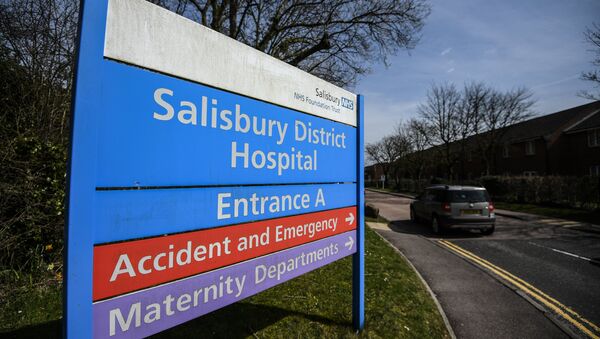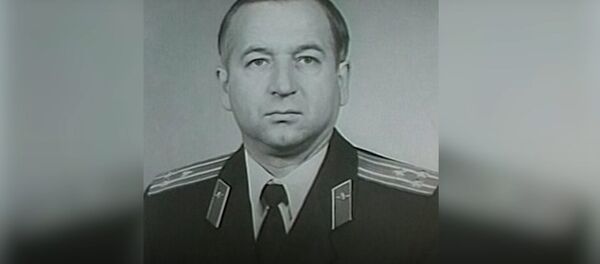"The Skripal Files" by Mark Urban is expected to be out this week. The Guardian published excerpts from it, claiming the former colonel was reluctant to admit he had been targeted by the Kremlin and went through "psychological adjustments" when he awoke from a weeks-long coma.
"We are yet to familiarize ourselves with the contents of the book. But its author, Mark Urban, is known to have ties to the British intelligence. This proves the book is meant as a substitute of Sergei Skripal’s testimony in a televised live appearance as a key witness in the Salisbury incident," the spokesman told Sputnik.
READ MORE: Skripal's Niece Wants to Meet Salisbury Case 'Suspects' Personally
He said British authorities had repeatedly refused to cooperate officially with Russia on the suspected nerve agent attack in the English town, to the detriment of the inquiry. Russia, he added, would continue to seek the truth about the poisoning and would file new requests for information disclosure.
A couple of Russian citizens, who said they went to Salisbury as tourists in March, were indicted in September over a suspected role in the poisoning. UK media later said at least one of the men was an officer traveling under a false name. A spokeswoman for the Russian Foreign Ministry said there was no proof to back that claim either.
The Russian Foreign Ministry has sent some 60 diplomatic notes to the UK Foreign Office demanding that Russia be given access to the investigation and the Skripals, who have Russian citizenship, as well as requesting legal assistance and proposing cooperation, including on the joint inquiry. The UK authorities have not responded to any of these notes.
The Book
In his book, the BBC editor, Mark Urban suggested that The UK authorities felt guilty over the fact that they failed to protect Russian double agent Sergei Skripal from poisoning and continued to guard him for this reason.
Guilt was one of the reasons why the UK authorities had kept the Skripals under guard though they acknowledged that the Russian ex-spy and his daughter Yulia, who had also been poisoned, wanted to move on, Urban suggested.
The authorities had not wanted to face the risk of public accusations and lawsuits, the journalist continued. The authorities also did not want the Skripals to face media scrutiny, Urban added.
READ MORE: Estonia Denies Reports on Skripal Contribution to Exposing Spies in 2016
He suggested that Skripal's life in his house in Salisbury was over, adding that if the ex-spy and his daughter, who had also been poisoned, had been living in a safe place under the guard of the UK authorities, this would not last for an indefinite amount of time, so the issue of where they would live would arise.
The author also referred to the claims that the Skripals had been offered to move to the United States or another English-speaking country under new identities, by saying that neither Sergei nor Yulia had supported this idea.




